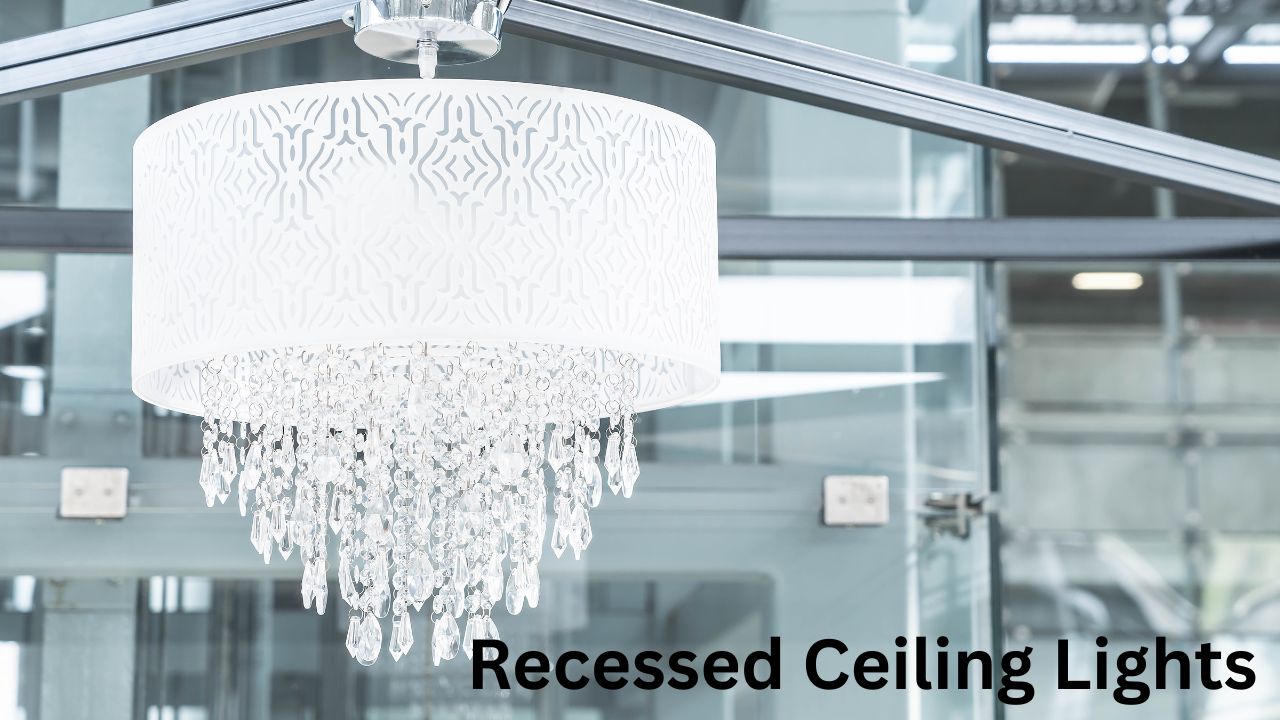Imagine walking into a room where the lights are so perfectly tucked into the ceiling that they seem to appear by magic—clean, bright, and modern. That’s the charm of recessed ceiling lights. They don’t hang down. They don’t clutter your space. They just glow. Softly. Powerfully. Beautifully.
If you’ve ever thought, “What are those neat lights in the ceiling?” or “How do I get that modern lighting look without big, bulky fixtures?”—you’re in exactly the right place.
In this section, we’ll break down the what, the why, and the magic behind recessed lights so simply that even a 10-year-old could explain it at dinner. Let’s make it fun and fuss-free.
What Are Recessed Ceiling Lights?
Let’s keep this simple. Recessed ceiling lights, also called can lights, pot lights, or downlights, are lights that are installed directly inside the ceiling. That’s right—they don’t hang down or stick out.
They sit inside a small recess in the ceiling (yes, that’s where the name comes from). When you look up, you mostly see the glow, not the light itself. Pretty clever, right?
These are perfect for:
- Low ceilings, because they don’t take up space.
- Modern homes, where clean design is key.
- Highlighting specific areas like artwork or countertops.
- Even lighting that doesn’t scream “look at me!”
The Three Main Parts of a Recessed Light
You’ll hear all sorts of fancy names, but here’s what you really need to know. Every recessed ceiling light has three simple parts:
1. The Housing
Think of this as the “bucket” that sits hidden in the ceiling. It holds everything together and connects to your home’s electrical wiring. There are special types like:
- New-construction housings (for open ceilings)
- Remodel housings (for existing finished ceilings)
You’ll also see labels like IC-rated (safe near insulation) and airtight (saves energy).
2. The Trim
This is the part you can see when you look up. It’s like the “frame” around the light. Some are shiny, some are white, some are adjustable to point the light in different directions.
Popular trims:
- Baffle trims (reduce glare)
- Reflector trims (super bright)
- Eyeball trims (adjustable)
- Wall-wash trims (highlight walls or artwork)
3. The Bulb or LED Module
This is the actual light source. You can use traditional bulbs or modern LED recessed ceiling light fixtures that are sleek and long-lasting.
Why Are Recessed Lights So Popular?
Simple—because they just make life easier and homes more beautiful.
Clean and Modern Look
Ceiling with recessed lights feels open, airy, and clean. No hanging wires or bulky shades. It’s like having lighting that blends into the background but still does all the work.
Space-Saving
If you have a low ceiling or a small room, traditional light fixtures can feel like they’re invading your space. With recessed led ceiling lights, your ceiling feels higher, and the room feels bigger.
Versatility
They can go almost anywhere:
- Kitchen?
- Bathroom?
- Hallway, basement, or office?
You can even install sloped ceiling recessed lighting, vaulted ceiling recessed lighting, or cathedral ceiling recessed lighting to match special ceiling types.
Energy Efficiency
Today’s LED recessed ceiling light fixtures are built to last and use way less energy than old-school bulbs. That means lower bills and fewer ladder climbs to replace burnt-out lights.
The Secret to a Beautiful Ceiling Design
You know what turns a “meh” ceiling into a “wow” moment? The right layout.
When planning lighting for recessed ceiling, think of your ceiling like a blank canvas. The lights are your paint. Where you place them makes all the difference.
Let’s say you’ve got a kitchen island. Drop three ceiling recessed lights in a neat line above it—boom! Now you’ve got stylish task lighting. Want to make your living room cozy? Add dimmable recessed lighting fixtures for drop ceiling around the edges of the room and set the mood for movie night.
Need ideas for an angled ceiling? Use recessed can lights for vaulted ceilings or recessed can lights sloped ceiling—they’re designed to aim light downward even when the ceiling tilts.
Recessed Lights in Different Ceiling Types
Here’s where a lot of people get confused—can you really put recessed lights into any ceiling? The short answer: YES (with the right parts).
Drop Ceilings (like in basements or offices)
You’ll need:
- Recessed lighting in ceiling tiles
- Recessed light fixtures for suspended ceilings
- Recessed cans in drop ceiling
These are made to clip securely between the tiles and the grid. They’re super neat and practical.
T-Bar Ceilings
Use recessed lights for t bar ceiling that snap right in. No sagging tiles, no fuss.
Sloped or Vaulted Ceilings
Here, angle-adjustable fixtures like recessed lighting for sloped ceiling are key. They keep the light pointing straight down instead of shooting off at weird angles.
Fun Fact: What About Ceiling Fans?
You can totally combine recessed lighting and ceiling fan in the same room—and you should! Just space your lights about 18 inches away from the fan blades so there’s no strobe effect.
Even cooler? There are setups like recessed ceiling fan, or ceiling fan recessed combos that keep the fan hidden in a sleek recessed enclosure. Looks fancy. Feels breezy.
Bonus Tip: A/C and Recessed Lights
Doing a renovation? Make room for a/c recess ceiling fan coil installation while you’re wiring your lights. It’s smart planning. The air flows better, and everything looks cleaner.
Let’s Recap with a Checklist:
Recessed ceiling lights = space-saving, sleek, and modern
Work great in flat, sloped, or drop ceilings
Come in a wide variety of trims and housings
Easy to pair with fans, air units, and smart controls
Energy-efficient with LED recessed ceiling light fixtures
Perfect for any room: kitchen, living, bath, office, hallway
Layout matters! Get creative with your spacing
DIY or pro—either way, it’s a worthy upgrade
Final Words (For Now…)
So there you have it—your crash course in what recessed ceiling lighting is and why it’s one of the best choices for modern homes. Whether you’re planning your dream kitchen or just tired of that dusty old ceiling light, recessed led ceiling light options open up a world of design possibilities.
And guess what? We’re just getting started.
In the next section, we’ll dig deeper into the different types of recessed lighting and how to choose the one that’s right for you. So grab a coffee—or a flashlight—and let’s continue lighting up your life, one ceiling at a time.




